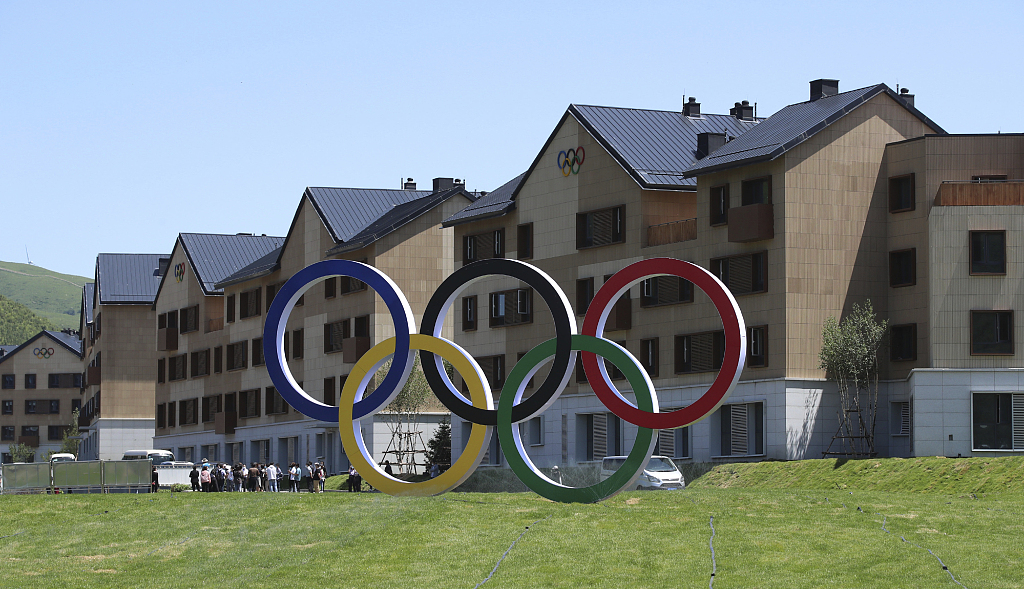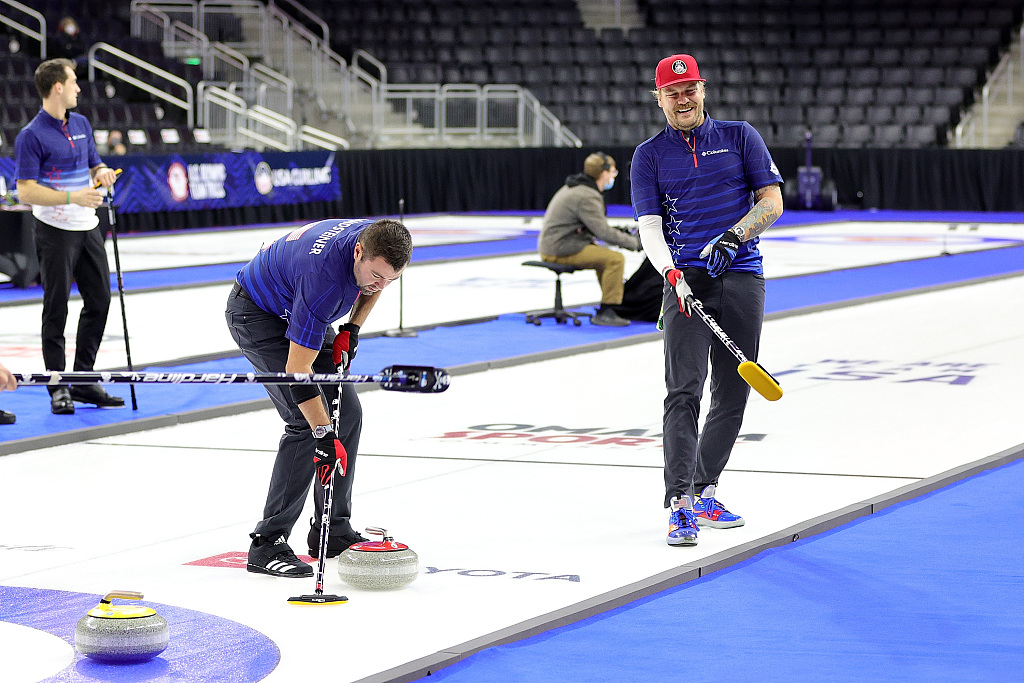
Athletes' village of the Beijing 2022 Winter Olympic Games in Zhangjiakou city, Hebei Province, China, July 14, 2021. /CFP
Athletes' village of the Beijing 2022 Winter Olympic Games in Zhangjiakou city, Hebei Province, China, July 14, 2021. /CFP
Editor's note:Thomas O. Falk is a London-based political analyst and commentator. He holds a Master of Arts in international relations from the University of Birmingham and specializes in U.S. affairs. The article reflects the author's opinions and not necessarily the views of CGTN.
The U.S. has followed through on its threat and announced a "diplomatic boycott" of the Beijing 2022 Winter Olympics. White House Press Secretary Jen Psaki confirmed that the Biden Administration would not send diplomatic or government representatives to Beijing for the Winter Games.
The American athletes will be cheered on from home, said Psaki. When asked why the U.S. government refrained from a complete boycott of the Games, Psaki said they did not want to punish the athletes who had trained intensively for the Games. And the government believes that this step will also send out a "clear message."
A clear message? Indeed. In fact, various messages have thereby been sent. One has already resulted in China saying it would invoke strong countermeasures if the U.S. followed through on the boycott, said Chinese Foreign Ministry Spokesperson Zhao Lijian.
The U.S.'s decision has also opened the door for other actors to follow suit. On December 8, Canada announced its intention to follow the U.S., and the UK's Boris Johnson is mulling on whether to send only the ambassador to China to the games with no other British ministers.
But regardless of the machinations in Washington, Ottawa or London, a boycott was and is the worst form of the ultima ratio. Indeed, the public attention that a host country attracts with a major sporting event is a consolation that can bring much more positive change than a boycott.
But pointlessness is only one aspect in an array of unnecessary consequences a boycott triggers.

American curler Matt Hamilton (R) tosses his broom to celebrate winning Game 3 of the U.S. Olympic Team Trials at Baxter Arena in Omaha, Nebraska, U.S., November 21, 2021. /VCG
American curler Matt Hamilton (R) tosses his broom to celebrate winning Game 3 of the U.S. Olympic Team Trials at Baxter Arena in Omaha, Nebraska, U.S., November 21, 2021. /VCG
A boycott displays disrespect towards the athletes, who have often worked towards the games for four years. Supporting the athletes from home, as Psarki pontificated, is the polite version of abandonment. What kind of message does it send to the athletes when you consider the Olympic Games to be so minor that one is inclined to abuse them for political leverage?
American and Canadian governments choose to be absent at the pinnacle moment of their athletes' careers, a moment that may never repeat itself.
Baron de Coubertin, the founder of the International Olympic Committee, provided the world with one of its most famous credos: "The important thing in the Olympic Games is not to win but to take part, just as the important thing in life is not the triumph but the struggle."
A boycott, not to take part, is hence not only counterproductive but against the Olympic spirit that has created so many impeccable memories over the centuries and made all of us come together.
Our world is already sufficiently complicated and divided. Sports is currently pretty much the final occasion that unites cities, regions and entire nations - at least temporarily. It allows various classes, races, religions and ideologies to mix without any prejudice and to put their differences aside.
Regardless of whether it is the World Cup or the Olympic Games,sports and politics should not be played against each other. Sports lives from its autonomy and the joy it can spark, the social cohesion it can generate. If one politicizes sports, one deprives people of the last bastion of common understanding.
Sports should build bridges, not walls - as Ping Pong Diplomacy taught us decades ago.
(If you want to contribute and have specific expertise, please contact us at opinions@cgtn.com.)

